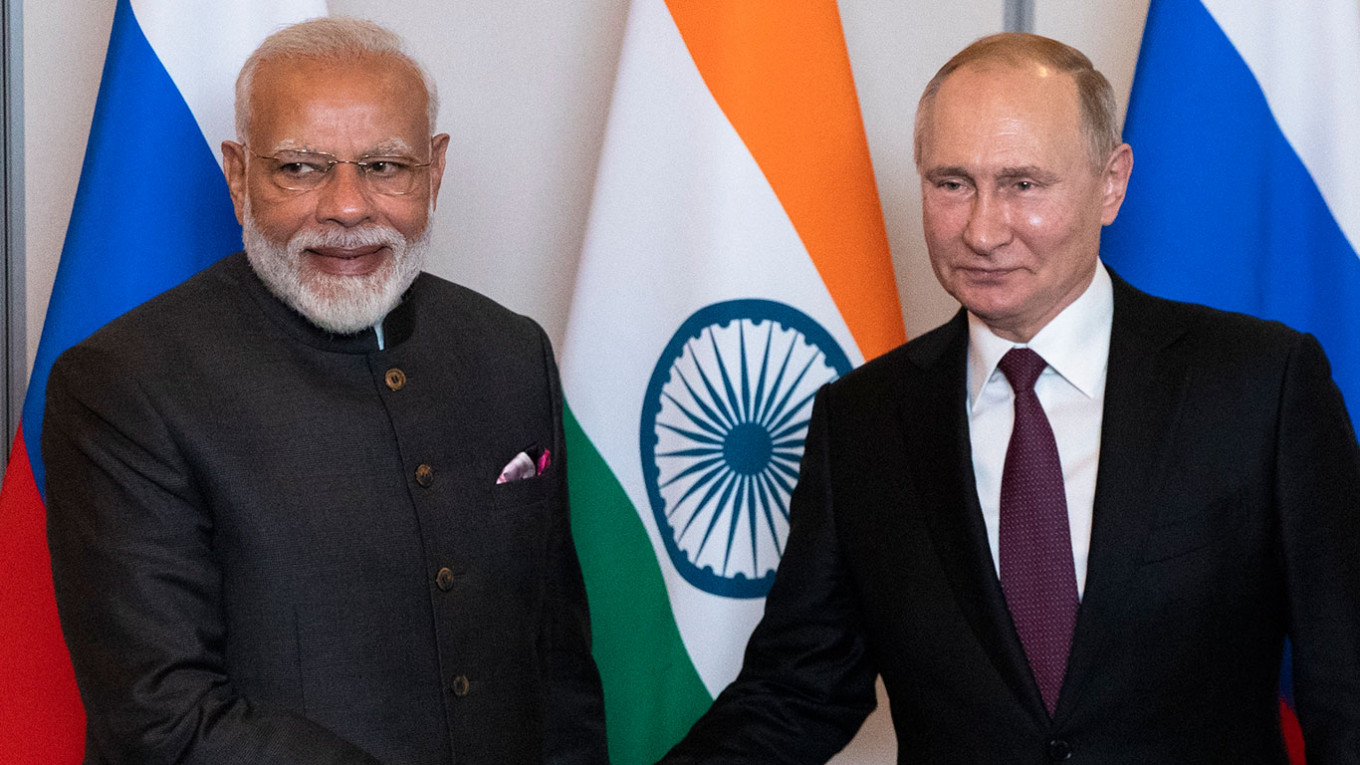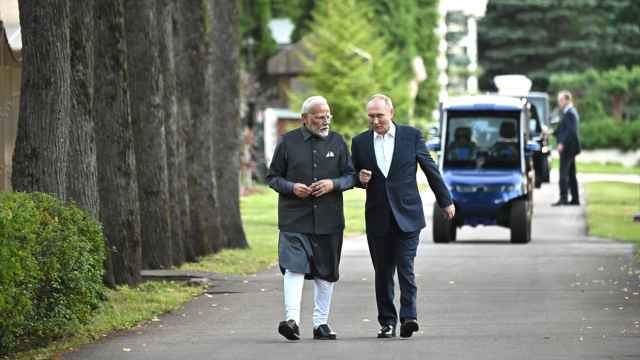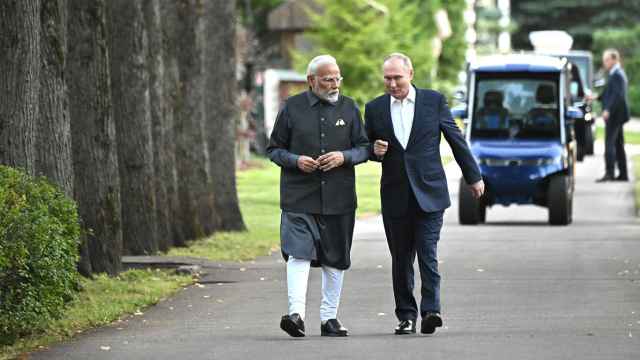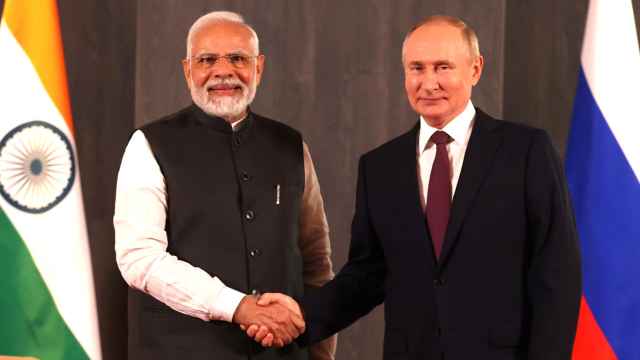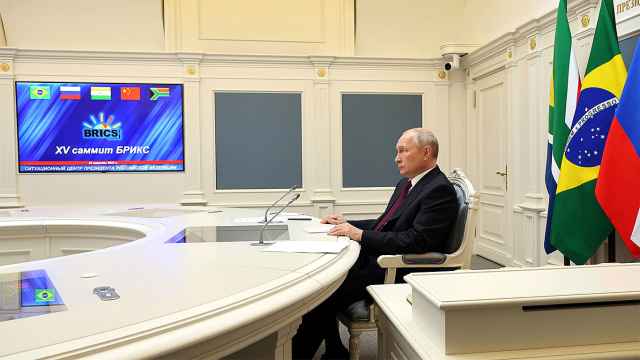Russian President Vladimir Putin arrived in India on Monday for just his second overseas trip since the pandemic, seeking to bolster military and energy ties with a traditional ally being courted by Washington.
In its efforts to address a rising China, Washington has set up the QUAD security dialogue with India, Japan, and Australia, raising concerns in both Beijing and Moscow.
India was close to the Soviet Union during the Cold War, a relationship that has endured, with New Delhi calling it a "special and privileged strategic partnership."
"The friendship between India and Russia has stood the test of time," Modi told Putin at a virtual summit in September. "You have always been a great friend of India."
It is only the Russian leader's second trip abroad since the coronavirus pandemic began — he skipped both the G20 and COP26 summits this year — after a June summit with U.S. President Joe Biden in Geneva.
"It's hugely symbolic," said Nandan Unnikrishnan from the New Delhi-based Observer Research Foundation think tank.
"There has been a lot of speculation about the nature of the India-Russia relationship and whether it is fraying because of Russia's closeness with China and India's with the U.S., but this visit puts all that to rest."
Nonetheless Putin has to contend with complex regional dynamics, with tensions mounting between New Delhi and Beijing, traditionally an ally of Moscow, following deadly clashes in a disputed Himalayan region.
"Russia's influence in the region is very limited," said Tatiana Belousova of OP Jindal Global University in Haryana, "mostly because of its close ties with China and unwillingness to act in dissonance with the Chinese regional interests."
'Quite remarkable'
The Kremlin said last week the talks will be dominated by defense and energy issues, with the boss of Russian energy giant Rosneft, Igor Sechin, also attending as a "number of important energy agreements" were on the table.
Russia has long been a key arms supplier to India, which is looking to modernize its armed forces, and one of their most high-profile current contracts is for the long-range S-400 ground-to-air missile defense system.
The deal, worth over $5 billion, was signed in 2018 and deliveries have reportedly begun, but it threatens to upend the burgeoning relationship between New Delhi and Washington.
The United States has threatened sanctions under the Countering America's Adversaries Through Sanctions Act (CAATSA), which is aimed at reining in Russia, and the state department said last week that no decisions had been made on any waivers for India.
"Our Indian friends clearly explained that they are a sovereign country and that they will decide whose weapons to buy and who will be India's partner," Kremlin spokesman Dmitry Peskov told reporters on Monday.
New Delhi has long sought to diversify its military imports but analysts believe it could take some time before it moves away from Russia.
Military equipment was "paramount" to India given "unabated" tensions with Pakistan, according to Unnikrishnan. "You're going to try and nurture whatever is required to ensure that."
India is also keen to increase domestic production and has launched a joint venture with Russia to manufacture AK-203 assault rifles.
India and Russia normally hold annual summits, but the leaders' last in-person meeting was on the sidelines of the 2019 BRICS Summit in Brazil.
"The leaders will review the state and prospects of bilateral relations and discuss ways to further strengthen the strategic partnership between the two countries," India's ministry of external affairs said in a statement last month.
The two countries' foreign and defense ministers held talks Monday ahead of Putin's arrival.
A number of agreements and contracts were signed on small arms and military cooperation, India's defense minister Rajnath Singh tweeted.
Moscow and New Delhi hold "identical or near-identical positions on the most important global and security issues," said Russian Foreign Minister Sergei Lavrov.
A Message from The Moscow Times:
Dear readers,
We are facing unprecedented challenges. Russia's Prosecutor General's Office has designated The Moscow Times as an "undesirable" organization, criminalizing our work and putting our staff at risk of prosecution. This follows our earlier unjust labeling as a "foreign agent."
These actions are direct attempts to silence independent journalism in Russia. The authorities claim our work "discredits the decisions of the Russian leadership." We see things differently: we strive to provide accurate, unbiased reporting on Russia.
We, the journalists of The Moscow Times, refuse to be silenced. But to continue our work, we need your help.
Your support, no matter how small, makes a world of difference. If you can, please support us monthly starting from just $2. It's quick to set up, and every contribution makes a significant impact.
By supporting The Moscow Times, you're defending open, independent journalism in the face of repression. Thank you for standing with us.
Remind me later.


